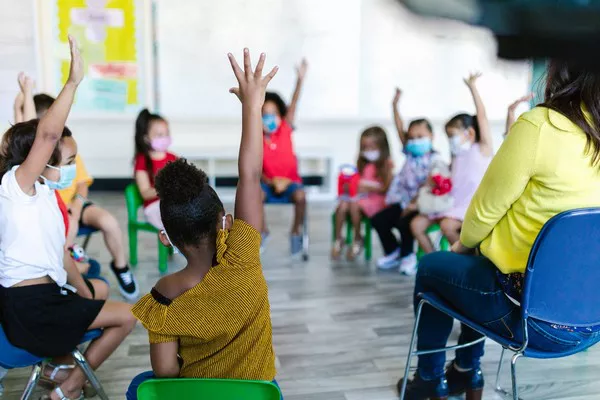Self-image and self-esteem are two intertwined concepts that play a fundamental role in shaping our perceptions of ourselves and influencing our mental well-being. While often used interchangeably, these terms encompass distinct aspects of our self-perception.
Defining Self-Image and Self-Esteem
At its core, self-image refers to the mental picture we hold of ourselves — how we perceive our physical appearance, abilities, personality, and roles in various aspects of life. It is a composite of the thoughts, feelings, and beliefs we have about our own identity. Self-esteem, on the other hand, is the evaluative component of self-perception. It reflects the overall sense of worth and value we attribute to ourselves based on our assessment of our abilities, achievements, and how we believe others perceive us.
These concepts are deeply interconnected, with self-image influencing self-esteem and vice versa. The lens through which we view ourselves, both internally and externally, contributes to the formation and maintenance of a healthy or distorted sense of self-worth.
Factors Influencing Self-Image and Self-Esteem
Several factors contribute to the development of self-image and self-esteem, and these influences often interact in complex ways. One primary influencer is early life experiences, including family dynamics, societal expectations, and cultural norms. The feedback and validation received during formative years can significantly shape how individuals perceive themselves.
Social interactions and peer relationships also play a crucial role. Positive social experiences, supportive friendships, and healthy relationships contribute to a positive self-image and self-esteem, while negative interactions can lead to feelings of inadequacy and diminished self-worth. Media, societal standards of beauty, and cultural ideals also contribute to shaping how individuals view their bodies and overall identity.
Personal achievements and setbacks contribute to the evaluation of one’s abilities and worth. Successes can boost self-esteem, fostering a sense of competence and mastery, while failures may lead to self-doubt and a diminished sense of worth. Additionally, internal factors such as cognitive processes, thought patterns, and coping mechanisms influence how individuals interpret and respond to external feedback and experiences.
The Relationship Between Self-Image and Self-Esteem
The connection between self-image and self-esteem is intricate and reciprocal. A positive self-image, where individuals view themselves in a favorable light, often contributes to higher self-esteem. Conversely, individuals with a negative self-image, marked by dissatisfaction with their appearance or perceived shortcomings, may experience lower self-esteem. The way we see ourselves influences the judgments we make about our worth, abilities, and potential for success.
It’s essential to recognize that self-image and self-esteem are dynamic and can change over time. Life experiences, personal growth, and intentional efforts to challenge negative thought patterns can contribute to improvements in both self-image and self-esteem.
Cultivating a Positive Self-Image
Cultivating a positive self-image involves fostering a realistic and compassionate view of oneself. Embracing one’s strengths, acknowledging accomplishments, and practicing self-acceptance are integral components of a healthy self-image. It also involves challenging societal standards of beauty and recognizing the diversity of body shapes, sizes, and abilities.
Engaging in activities that bring joy and a sense of achievement, setting realistic goals, and prioritizing self-care contribute to a positive self-image. Surrounding oneself with supportive relationships that appreciate and celebrate individuality can also enhance how one sees oneself.
Building Healthy Self-Esteem
Building healthy self-esteem involves recognizing and challenging negative thought patterns and beliefs. Embracing a growth mindset, where challenges are viewed as opportunities for learning and growth, can positively impact self-esteem. Setting and achieving realistic goals, acknowledging personal strengths, and seeking support when needed are essential components of cultivating healthy self-esteem.
The power of positive affirmations and self-compassion should not be underestimated. Offering oneself the same kindness and encouragement extended to others contributes to a more balanced and positive self-esteem. Seeking professional guidance through therapy or counseling can also be instrumental in addressing deep-seated beliefs and patterns that may hinder the development of healthy self-esteem.
The Impact of Positive Self-Image and Self-Esteem on Mental Health
A positive self-image and healthy self-esteem have far-reaching implications for mental health. Individuals with a positive self-image are more likely to experience higher levels of life satisfaction, lower levels of stress, and improved overall well-being. Positive self-esteem acts as a protective factor against mental health challenges such as anxiety, depression, and low self-worth.
The way we perceive ourselves influences how we navigate relationships, pursue goals, and cope with life’s challenges. Individuals with healthy self-esteem are more resilient in the face of setbacks, capable of maintaining a positive outlook, and better equipped to handle stressors. The interplay between self-image and self-esteem significantly shapes the narrative of our mental health and contributes to the overall quality of life.
Overcoming Challenges to Self-Image and Self-Esteem
Despite the benefits of positive self-image and self-esteem, individuals may face challenges that impact their perceptions of themselves. External factors such as societal pressure, discrimination, or unrealistic beauty standards can contribute to negative self-image. Internal challenges, including negative thought patterns, perfectionism, or a history of trauma, can also hinder the development of healthy self-esteem.
Addressing these challenges often requires a multi-faceted approach. Cognitive-behavioral therapy (CBT), for instance, is effective in challenging and changing negative thought patterns that contribute to a distorted self-image and self-esteem. Seeking support from friends, family, or mental health professionals can provide valuable perspectives and coping strategies.
Parental Influence on the Development of Self-Image and Self-Esteem
The role of parents in shaping the self-image and self-esteem of their children is profound. Early interactions, expressions of love, and the establishment of a secure attachment contribute to a child’s sense of self-worth. Positive reinforcement, encouragement, and providing a safe space for expressing emotions contribute to the development of a healthy self-image and self-esteem.
Conversely, negative or critical parenting styles can contribute to the formation of a negative self-image. Harsh criticism, unrealistic expectations, or neglect can significantly impact a child’s self-esteem, potentially leading to long-term consequences for their mental health. Parental influence continues into adolescence and adulthood, emphasizing the importance of fostering a supportive and nurturing environment.
Educational and Societal Influences on Self-Image and Self-Esteem
Educational settings and societal influences also play a crucial role in shaping self-image and self-esteem. The emphasis on academic achievements, peer comparisons, and societal expectations can impact how individuals perceive their abilities and overall worth. School environments that prioritize holistic development, celebrate diversity, and promote positive relationships contribute to a more positive self-image and self-esteem among students.
Addressing societal standards of beauty, challenging stereotypes, and promoting inclusivity contribute to a more positive collective self-image. Educational and societal institutions have the power to foster environments that celebrate individual strengths, encourage resilience, and prioritize mental well-being.
Cultural Variations in Self-Image and Self-Esteem
Cultural influences contribute to variations in self-image and self-esteem across different societies. Cultural norms, values, and expectations shape how individuals perceive themselves and others. In cultures that prioritize collectivism, individuals may derive a significant portion of their self-esteem from their roles within the community and their relationships with others.
Conversely, in cultures that emphasize individualism, personal achievements and self-expression may play a more significant role in shaping self-esteem. Understanding and respecting cultural variations in self-image and self-esteem contribute to a more inclusive and nuanced perspective on the diverse ways individuals construct their identities.
Conclusion
In conclusion, the concepts of self-image and self-esteem are pivotal in shaping our perceptions of ourselves and influencing our mental well-being. Understanding the intricacies of these concepts allows individuals to navigate the complexities of their self-perception more consciously. Cultivating a positive self-image involves embracing one’s uniqueness and challenging societal ideals, while building healthy self-esteem requires recognizing and valuing one’s worth beyond external validations.
The journey toward a positive sense of self is ongoing, marked by self-discovery, self-compassion, and intentional efforts to challenge negative beliefs. Whether through individual reflection, therapeutic interventions, or societal changes that promote inclusivity and diversity, fostering a positive self-image and self-esteem contributes to a more resilient, empowered, and fulfilled sense of self.
Related Topics:



















